Worldwide Service
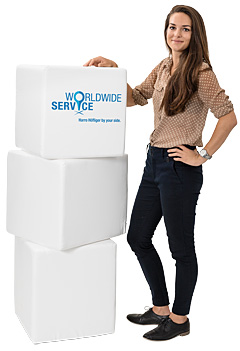
Luise Räuchle,
Product Manager
“Customer Service at Harro Höfliger supports our customers all over the world – online, by phone and of course personally on site. Each customer is different and every project has specific requirements. This is why it is important for us that every customer has access to a personal contact person who provides support over a long period of time.
These employees are assisted by specialized teams within our organization who are in charge of their respective service products. As a part of our digitization efforts, we are working on smart solutions to make our machines and the associated services as efficient as possible.”
Training

Hergen Wersch,
Team Leader Customer Training
“At Harro Höfliger almost every machine is unique. Consequently, training courses are tailored to customer requirements. Technical editors compile individual training documents for each machine. The instructor is always a technician from the team who built the machine.
Our training courses focus on the safe handling of the machine and the minimization of operating errors. This is how we ensure reliable production. On request, we can also share expert knowledge on integrated devices such as cameras, laser technology, robots or sensors.
Depending on the information requirements of your company, we offer different training levels, from operator training and technician and maintenance training to training for electricians. Training courses take place primarily at your location. Upon request, we would also be happy to arrange for instruction at our facilities.”
Remote maintenance
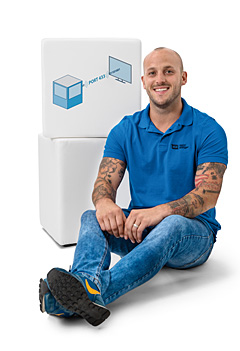
Fabian Schoene,
Technical Customer Support
“We find that more than 80 percent of service requests can be solved by remote maintenance. Our team responds within three hours and offers 24/7 support if needed. In most cases, we can solve software problems and identify mechanical malfunctions immediately.
If spare parts are needed, we will inform the appropriate colleagues within our organization directly. Remote maintenance preferably takes place via the Excellence United portal, which enables a secure port-to-port connection. The connection for machine access is only established after a service request has been initiated by our customer. Initiation of external access from our side is not possible.”
Spare parts
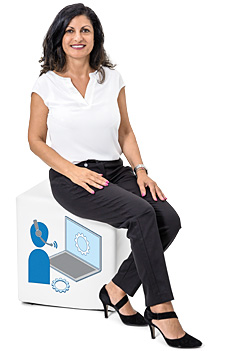
Güldane Gedik,
Service Administrator
“Our top priority is to guarantee the production reliability of our customers’ systems and to prevent machine downtime. The initial equipment package that we compile for each machine gives customers an overview of which spare parts they should have on hand. Customers can stock the spare parts packages and have immediate access if required.
With each machine we supply a 3D spare parts catalogue, enabling the rapid identification and ordering of parts. Depending on the urgency, the parts are delivered by express or courier service. Of course, we can also assist with identifying parts using a photo or description.”
Maintenance
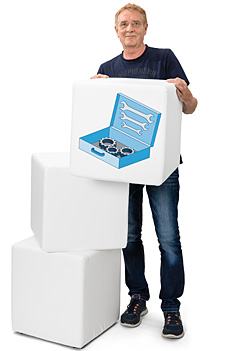
Manfred Wegner,
Technical Specialist
“In order to ensure trouble-free operation of a machine and to keep maintenance costs low, regular inspections and maintenance are required. On request, we will develop an individual maintenance concept for each machine. Our maintenance schedule is based on a FMECA-risk analysis, in which we evaluate the service life of each wear part.
With this data, maintenance intervals can be precisely defined and even the duration of a maintenance task planned in advance can be anticipated. Our evaluation and close customer contact make sure that only those parts that are actually worn are replaced. The analysis also forms the basis for the spare parts package with recommendations for stocking of spare parts at the customer’s site.”
Machine modifications
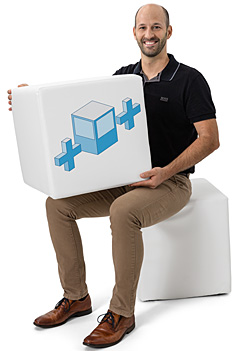
Steffen Nitsch,
Team Leader Engineering
“In order to maintain machine performance over the entire machine life cycle and to adapt it to changing requirements, modifications may become necessary over time. New market demands, such as serialization, require the retrofitting of camera systems or coding methods. Customer-driven conversions range from simple part modifications for process improvement, format adjustments in case of product changeovers, to the conversion of complete stations.
In the years to come, we will expand our design team so that these tasks can be handled directly in the Customer Service department. During the course of the machine life cycle, components are often discontinued. If this occurs, it is our responsibility to identify the spare parts which are to be either replaced 1:1, or ensure the continued operation of the machine by supplying a conversion kit.”
